- Air Homepage
- Upper Atmosphere
- Science Experiments
A Variety of Science Experiments
There's no denying the importance of science experiments. What makes the experiments we try fun?
Search for more about science and school.
You know that feeling when a simple question leads to a mind-blowing, hands-on realization? Explore this exciting guide that celebrates the power of science experiments-from growing a balloon to designing a solar power demonstration-and get inspired! The Ultimate Scientist's Guide: From Hypothesis to Hands-On
Here's what I think:
- Experiments let us explore the world around us and discover new things. Experiments help us observe phenomena, test hypotheses, and learn more about nature.
- Solving problems is a big part of these experiments. Using the scientific method, we can develop a hypothesis, test it, and draw conclusions. There's a lot of satisfaction and reward in this process.
- Science experiments often involve hands-on learning, which can be more engaging and memorable than passive learning. Experiments help us see how concepts and theories work in the real world.
- Science experiments are fun and fascinating to many people. It's fun for them to learn about science and explore new concepts.
- Applications: your experiments can have practical applications in our lives, such as helping us solve everyday problems or developing new technologies and treatments to improve our health.
Through empirical data, all sciences, from physics and chemistry to weather and ecology, expand their horizons.
There's a strong connection between today's problems and energy, weather, the atmosphere, and the economy. By understanding the foundations, we'll be able to overcome them.
Experiments help us learn to understand about the world around us and acknowledge its problems. As a result, we're able to protect the environment better.
There are science careers at universities, meteorological weather stations, energy laboratories, and research groups. In order to improve the quality of our lives, earth, and nature, consultants use principles they learn along the way.
Where do science experiments take place?
We have the National Renewable Energy Laboratory, which focuses on energy. In the southern part of the United States, the National Renewable Energy Laboratory is working on solar power technology.
To replace older technologies with solar power, they conduct experiments. That'd be a big deal. Sometimes first-world societies seem to know little about our planet.
Experimenting with computer modeling
A computer model can be considered a scientific experiment. The goal of computer modeling is to simulate real-world phenomena like weather patterns, disease spread, and material behavior.
A scientific method involves developing a hypothesis, testing it with experiments or observations, and analyzing the results. Scientists use computer simulations to test hypotheses about a system or process' behavior.
This kind of modeling involves creating a mathematical or computational model, running simulations, and analyzing the results to see how the system or process behaves under different conditions. Model parameters can be adjusted and multiple simulations can be run to test different scenarios and predict behavior.
As a scientific experiment, computer modeling depends on the accuracy of the model and the reliability of the data used to calibrate and validate it. Simulators must also take into account the model's limitations and the potential sources of error.
My full-time job is to provide environment consulting services through Calvin Consulting Group Ltd. in Calgary. Take a look at this overview of a typical modeling assessment we might perform.
In general, computer modeling can be a great tool for scientists to simulate complex systems and processes that might be hard to study directly. By testing hypotheses and making predictions, computer simulations can help scientists understand natural phenomena.
What was your science project?
Got a great science project idea? Maybe you enjoyed one of these or found a successful one you enjoyed. Did it work? Was it something to do with weather?
Maybe you screwed it up like I did...and can laugh about it now. I'd like to help.
Was it fun? What grade were you (or your child) in? We'd all like to hear about it. That way you can re-live the memory.
Here are some examples
See contributions from other visitors to this page...
The Telegraph 




This was something we had to be creative about in school. I was in Junior High and had to build a telegraph. We created it out of wood, inserted a nail, …
Grow a Balloon 




The purpose of my science fair project was to demonstrate how matter can change state. In this case I used a chemical reaction to change a liquid into …
Designer Vaccine Carrier Protein Complex 




I designed proteins in silicon that could form virus like particles to be used as versatile carrier protein complexes for vaccine development.
This …
Testing PH of Houshold Liquids 




I remember doing a project as a child with the help of my mother.
With some 9-volt batteries and that probably came packaged together with instructions, …
finding level of pollution in a drainage system at different location in a town 




This project was chosen by us to represent our school at a children science congress. We had to show our project to the judges when they come on a round …
Effects of laundry soap with and without phosphates 




My science project was seeing the effects of phosphates in laundry soaps. I used standard laundry equipment Speed Queen and the boxes of soap purchased …
Ways To Use Sunpower Everyday 




When I was in the eighth grade my science fair project was about using the energy of the sun. My partner and I demonstrated 3 ways to use sunshine for …
big fan of science 




Hy, I am Filip and I am a big fan of science, especially astronomy and physics.
I was involved in some chemistry experiments back in my old school. …
Butt Out 




Science Fairs are a great idea! They force young student to really buckle down and stretch their brain past what they thought was capable. It is also …
How do plants grow in different conditions 




For my elementary school (fourth grade) science fair, I did an experiment about plant growth. I took baby spider plants, cut from one adult plant, and …
burglar alarming latch 



I was in 9th standard then. Every year our school organized "ANNUAL SCIENCE EXPO". That year I participated and after lot of discussion I made "burglar …
How gender affects memory 



I showed a board with ten traditional 'girl' items (doll, for example) and 'boy' items (football, for example) to 10 boys and 10 girls in each grade - …
ozone smoke dispenser demo 



OK, I am not a student (actually, I came upon a device that would potentially help my grandson -12 yrs).
The other day I came upon a "gizmo" that …
Robotic Future 



My Science Project was to provide a Robotic statue which does the house hold stuff.
I acted as a robot with all the costumes made up of cardboard and …
the power of erosion 



I studied the effects of erosion and built an erosion simulator.
Barry's Response - What kind of a simulator, Jeremiah? A computer model, a physical …
Rain Water Harvesting Project 



A National Science Exhibition was organized in our school last October. My friend and I decided to make a project on Rain Water Harvesting as it was very …
wind and air 



What instrument do weathermen use to tell the wind and air speed
Barry's Response - The first thing they use is called an anemometer. It usually …
Galaxy 


Project review questions & answers
a) What did you do in the science fair? Galaxy light show
b) Did it work? Did you do …
water purifier 
I did this experiment in my school days. Take a vessel with a hole in the bottom and stack the vessel layer by layer with fine sand, small pebbles, gravels …
You've heard it before...
...Our future lies with the youth.
Any science fair project that mixes disciplines (astronomy, biology, chemistry, earth science and physical sciences) generates interest from professionals. It shows them that young people can be clever. Keep them healthy and young.
Projects for meteorological science fairs deal with weather situations like:
- Tornadoes, hurricanes, and other storms observed and analyzed,
- Understanding ocean-atmosphere interactions, and
- Observing the weather with weather stations.
Natural life on land and in water is what ecological subjects are about. These subjects are studied in interdisciplinary studies along with pollution, ecosystems, arctic environments, mountain barriers, and extreme climates.
As a result of useful scientific research, both people and nature can adapt to changes in their surroundings, such as deserts or colder climates. Taking part in these subject areas helps students realize how important it is to preserve nature and the environment.
Experiments in weather and energy have proven to be not only educational, but crucial to improving, or at least maintaining, the environment.
Search this site for more information now. There's info on biology, chemistry, and physics. You can also find resources to help you with science-related projects. Explore now!
Overall, science experiments can be fun, educational, and enjoyable. Using scientific experimentation, we can learn more about the natural world and develop new insights.
Go back from this Science Experiments
page to the Chasing Storms page or visit the Stuff in the Air homepage.
Are you interested in helping to preserve our planet through scientific experiments?
In order to understand and protect life, the air, nature, and the earth, scientists conduct experiments. Additionally, they assist us in improving our own quality of life.
Do you have concerns about air pollution in your area??
Perhaps modelling air pollution will provide the answers to your question.
That is what I do on a full-time basis. Find out if it is necessary for your project.
Have your Say...
on the StuffintheAir facebook page
Other topics listed in these guides:
The Stuff-in-the-Air Site Map
And,
Thank you to my research and writing assistants, ChatGPT and WordTune, as well as Wombo and others for the images.
OpenAI's large-scale language generation model (and others provided by Google and Meta), helped generate this text. As soon as draft language is generated, the author reviews, edits, and revises it to their own liking and is responsible for the content.
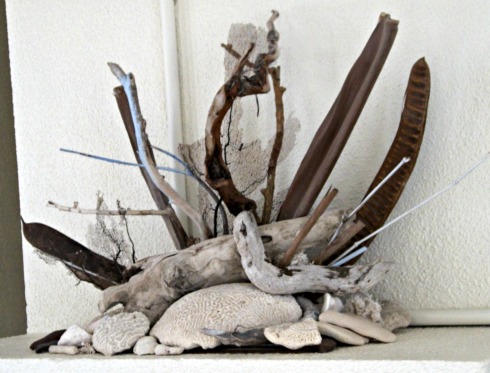




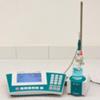










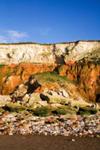
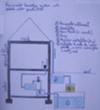



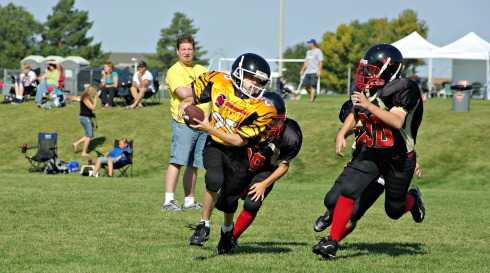

New! Comments
Do you like what you see here? Please let us know in the box below.